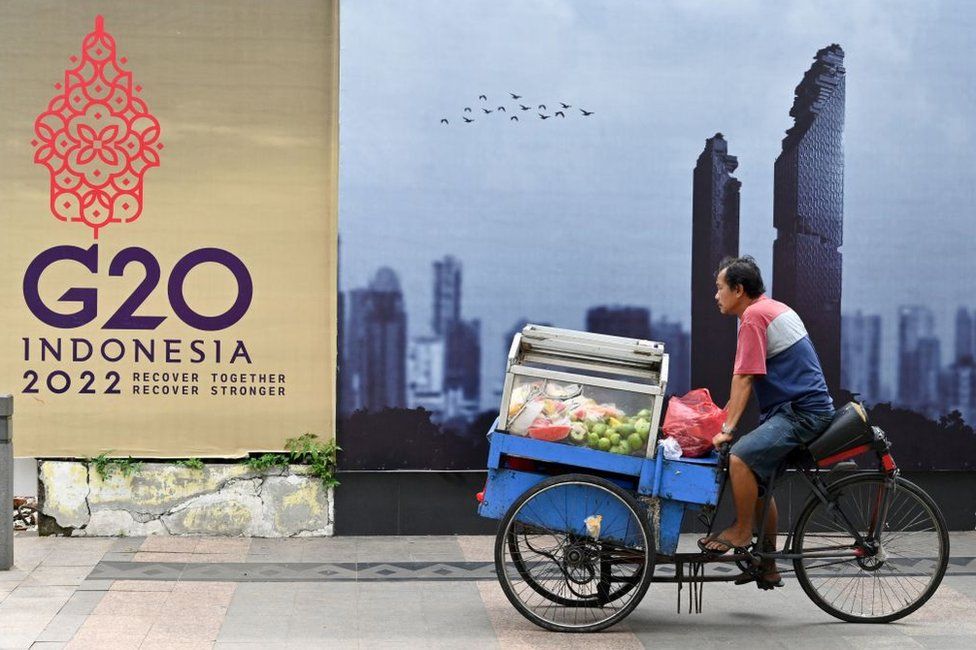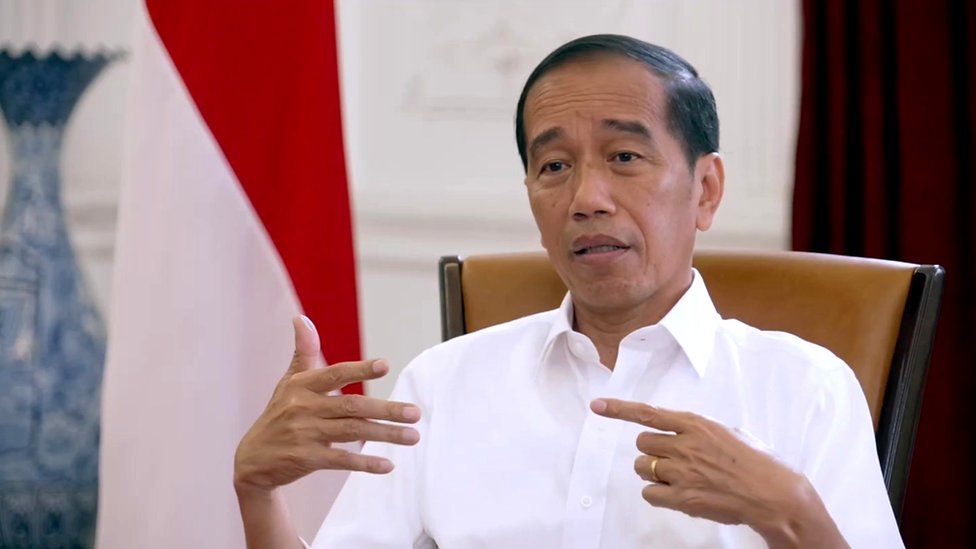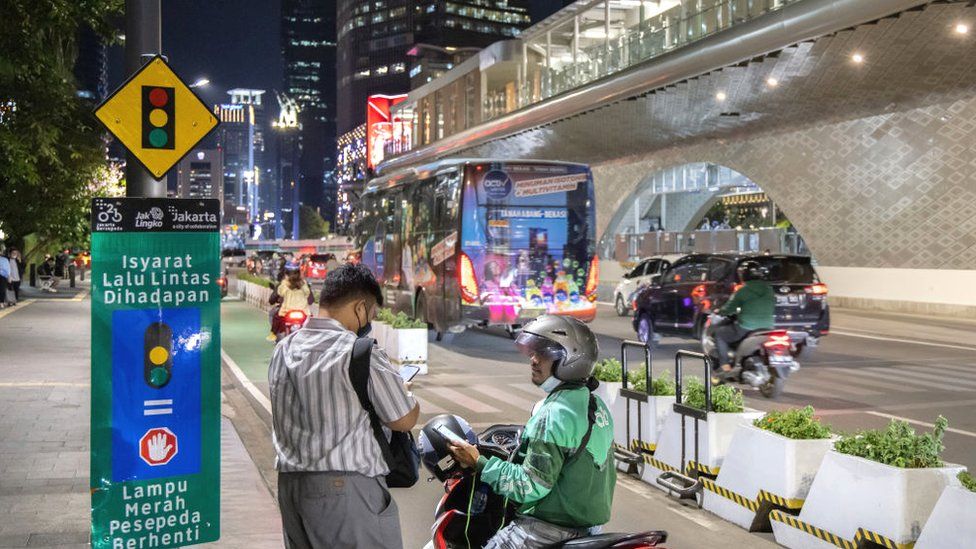



The Russia-Ukraine war and China's assertiveness have strained relations ahead of the summit
But this week the Indonesian island is hosting what could well be the most strained edition of the G20, or Group of 20 nations.
The annual summit - which includes 19 advanced and emerging economies and the EU - was created after the Asian financial crisis in 1999. And it considers itself something of a superpowers club that manages future crises.
And this time, there are plenty on the discussion block - the Russia-Ukraine war, brewing US-China tensions, soaring inflation, the ever-looming threat of a global recession, nuclear threats from North Korea, and perhaps most alarming of all, a rapidly warming earth.
Amid all this, host and Indonesian President Joko Widodo hopes to play chief dealmaker. Can he do it?
When we spoke ahead of the G20 meeting, Mr Widodo seemed sanguine about what has been described as the most diplomatically delicate and stressful G20 ever.
US President Joe Biden and China's leader Xi Jinping are set to meet on Monday - and the clash of the world's two largest economies has Mr Widodo worried.
"There can be no peace without dialogue," he told me in an exclusive interview at the presidential palace in Jakarta.
"If President Xi Jinping and President Joe Biden can meet and talk, it would be very good for the world, especially if they are able to come to an agreement about how to help the world recover."
Like many Asian countries, Indonesia has benefited from decades of free trade and multilateralism. The US has always been Indonesia's most important global strategic partner, but over the last decade, China has consistently ranked as one of its top two foreign investors.
That's made navigating the relationship between the two giants tricky, to say the least.

"There can be no peace without dialogue," says Joko Widodo - popularly known as Jokowi
An era in which China and the US aren't getting along is a far more dangerous one than Indonesia and other Asian countries have been accustomed to.
Observers say that that growing tensions between Washington and Beijing increase the risk of conflict in the Indo-Pacific.
Meanwhile there are also fears of the possible use of nuclear weapons, either in Ukraine or on the Korean peninsula, where Pyongyang has fired a record number of missiles this year.
"The use of nuclear weapons for any reason, cannot be tolerated," Mr Widodo, also known as Jokowi, says. "The increasing potential for nuclear use is… very dangerous for peace and for world stability."
A key issue for Mr Jokowi personally has been food security - particularly as the war in Ukraine has been responsible, in his view, for rising prices, something that directly impacts Indonesia's 275 million people.
He politely termed Russia's invasion of Ukraine a "headache", something that has been "taking up his mind".
Securing a steady and consistent resumption of grain exports is one of the reasons why - ahead of the meeting - he's crisscrossed the globe, meeting with Presidents Vladimir Putin and Volodymyr Zelensky to convince them to come to the meeting.
He had hoped they could talk. "I think it would be great if they [Presidents Vladimir Putin and Volodymyr Zelensky] could sit at the same table - to solve the problems that exist, because the problems that we are dealing with now are on all fronts," Mr Widodo said.
Mr Putin is not coming, Russian diplomats have since said, but Mr Zelensky could attend virtually.
The G20 is as much Indonesia's coming out party as it is Mr Widodo's swansong - he is in the final stretch of his presidency, and in 2024 he will have to stand down after two terms in power.
When I first met him in 2012, as the then Jakarta governor he was a younger and more idealistic. Branded the first "outsider" to become president in Indonesia's history, he was elected as a man of the people, a democrat's democrat.
Since then he's had to govern a vast archipelago of 17,000 islands, a country that from west to east stretches the distance between London and Baghdad, with hundreds of different languages and ethnicities in between.

Mr Widodo wants to cement his economic legacy in Indonesia - but it may be out of his hands
It's a challenge I've written about before and over the last few years I've seen Jokowi, man of the people, transform into Jokowi the president. Now a pragmatist, he's become a coalition-builder; someone who knows he has to compromise to not just survive but also thrive. Critics say he is no longer the democrat he used to be. Human rights groups and environmental campaigners have both said that he has consistently put the economy ahead of democratic interests.
Although he remains extremely popular by international standards, his approval ratings have fallen recently, partly because of rising prices.
Yet the country has weathered the current economic slowdown better than others, described by the International Monetary Fund as a "good performer" among regional economies.
It is obvious Mr Widodo is keen to preserve and grow the economic legacy he is leaving behind for Indonesia.
"What we would like to see in 2045 is that Indonesia's golden era will truly be realised," he says towards the end of our conversation. "By 2030, we expect Indonesia to become the number seven economy in the world."
It is a lofty ambition, and one that will resonate with many of his citizens. But it's also one that may be out of his hands.
Indonesia's future depends on a stable global economic environment - something Mr Widodo hopes to come closer to securing at next week's G20 summit.
-- Courtesy of BBC News